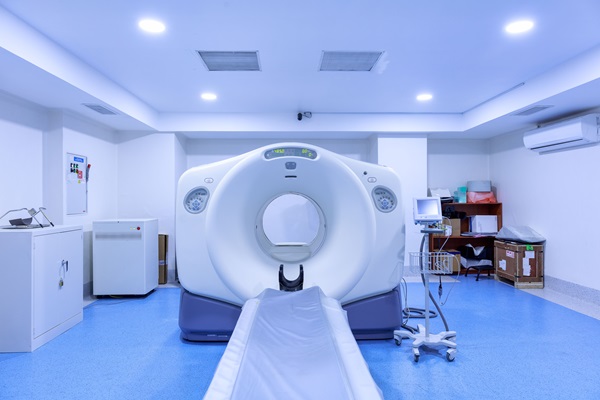Why Primary Care Matters: Foundation for Your Health

Primary care is an essential part of maintaining your health. Healthcare is not just about being reactive, like going to the doctor when sick. It is also about preventing illness and maximizing your health. Primary care is crucial for both. Along with that, people can build the foundation for a healthier future with regular checkups and visits. Here is a closer look at primary care and why it is vital to your health.
Defining primary care
Primary care is the foundation of a patient's healthcare, encompassing preventive care, health education, managing chronic conditions, coordinating care, and early diagnosis and treatment. It refers to the first point of contact between patients and the health care system. Not only is primary care the starting point for diagnosing illness, but also it is instrumental in preventing illness and keeping people healthy.
Role of the primary care provider
A primary care provider or PCP is typically a general practitioner, family physician, or internal medicine doctor who acts as a patient's primary healthcare coordinator. This is the doctor a patient sees for routine checkups and physicals.
The PCP develops an ongoing relationship with the patient and maintains their healthcare records. In addition, a person's primary care provider will provide referrals to specialists when needed and aid in managing ongoing health conditions. Also, primary care providers typically schedule time for their patients' sudden or acute healthcare needs.
Importance of primary care
Consistent primary care allows patients to enjoy better health and even save on healthcare costs. Here are just a few significant benefits primary care providers offer their patients:
Prevention of health issues
Primary care providers monitor changes in a patient's health and physical condition over time. They can identify trends and changes contributing to health problems and advise their patients accordingly. Because primary care providers keep detailed records of their patient's personal and family health history, they know what potential health issues a patient may be at risk for. This makes them uniquely positioned to advise the patient on preventing these health issues.
Early detection of health issues
Patients who see their primary care doctor regularly and undergo the recommended routine screenings are more likely to confront health issues early. It is common knowledge that early detection is key to successful treatment of a number of diseases, including many cancers. Early disease detection can often be life-saving and prevent the need for more intensive or invasive treatments later on.
Lowers healthcare costs
Primary care provides cost savings in direct and indirect ways. For example, healthy people are less likely to need as many medical services as time passes. Also, early detection of a disease is often less expensive to treat. The Purchaser Business Group on Health (PBGH) reported in 2021 that adults in the United States who have a primary care physician have 33% lower healthcare costs. Therefore, primary care is good for patients' wallets as well as their health.
Provides a source of health education
PCPs are invaluable sources of health education that empower patients to maximize their health and make informed decisions. They provide advice for healthy eating and lifestyle tailored to guide patients toward the healthiest version of themselves. Today's healthcare market is flooded with a range of new treatments as medical science is ever-evolving. Though many of these treatments are effective, not all have been proven, and not every treatment is right for every patient. A PCP can offer sound guidance on a patient's treatment options.
Care coordination
A patient's primary care doctor plays an important role in coordinating care and helping the patient navigate the healthcare system. The provider makes sure the patient is current with routine screenings and vaccinations and advises them as to when particular routine health services are needed.
Further, the PCP keeps track of where their patients are in their treatment protocols and what medications they are taking. They also provide referrals to medical specialists when a health issue falls outside their purview. These healthcare professionals can help patients navigate complex health situations and avoid denied insurance claims and unnecessary procedures and services.
Make primary care a priority
Texas Urgent Care & Imaging Center is dedicated to developing long-term relationships with patients and providing state-of-the-art care. Our goal is to give patients the tools and treatment they need to stay healthy and thrive. Call today to learn more about our primary care services, or schedule an appointment today.
Request an appointment here: https://tx-urgentcare.com or call Texas Urgent Care & Imaging Center at (832) 941-1894 for an appointment in our New Caney office.
Check out what others are saying about our services on Yelp: Primary Care in New Caney, TX.
Recent Posts
X-rays are popular tools medical professionals use to diagnose a wide range of health conditions quickly and safely. They allow these professionals to see inside the body without invasive procedures, making them invaluable in urgent and primary care settings. Whether identifying fractures, monitoring chronic conditions, or detecting abnormalities, X-rays are critical in ensuring timely and…
A CT scan, or computed tomography scan, is a diagnostic tool that provides detailed images of the body’s internal structures. This non-invasive procedure helps medical professionals diagnose and monitor various conditions, from injuries to chronic illnesses. Knowing what to expect during a CT scan can ease concerns and prepare patients for a smooth experience.A CT…
If you work in public transportation, you may need to have a DOT drug screening. The Department of Transportation (DOT) regulates this test and requires it for you. You might be wondering what this test is like. Keep reading to learn more.Congress passed the Omnibus Transportation Employee Testing Act in 1991. Congress knew that the…
Walk-in clinic provide convenient, accessible health care for non-emergency medical needs, making it an ideal choice when immediate attention is necessary. Understanding when to visit a clinic can help patients save time, avoid unnecessary trips to the emergency room, and receive quality care for their health concerns. These clinics handle various issues, offering fast, professional…


